In the kitchen of my studio apartment I have a Mr. Coffee automatic drip coffee machine, two French presses, a combination travel mug–French press, a Mr. Coffee espresso machine I bought in college, a black plastic pour-over coffee cone, and an emergency jar of Nescafé Clasico instant coffee, used twice. I am nothing if not prepared for the inevitability of coffee. In the course of a typical morning at home, I drink an eight-cup pot of auto-drip coffee—primarily for convenience. Excepting instant (which I reserve for true coffee emergencies), auto-drip coffee requires the least amount of work, and because my machine is a steal-a-cup (meaning the pot can be removed while brewing), my gratification is nearly immediate.
As a mildly employed freelance writer, I have little disposable income, a lot of time on my hands, and strictly rationed vices. One such vice is coffee, which I drink more of than most people I know—even other freelance writers. But, despite my quantity-over-quality brewing habits, I’m capable of mustering some taste, and of standing by preference with reasoned conviction. So, with limited resources for fanciness and a desperate addiction in mind, I set out to determine which basic, widely available coffee brand should stand out from the rest on the grocery store shelf. I enjoy a Blue Bottle pour-over as much as the next fiend, but a $3 morning coffee is above my pay grade. I drink most of my coffee at home, from a bag of grounds that costs around $8, reupped on a bi-weekly grocery run. My choice of bag is usually determined by habit, or price, or shelf height, with less care than I take choosing a bar of soap, though I use both daily. When it comes to choosing a regular coffee—travel-mug, after-dinner, Sunday-morning coffee—which is best?
After taste-testing thirteen different varieties of ground coffee widely available for purchase at a chain grocery store, the winner for a solid cup were Maxwell House. In terms of flavor and cost, it ranked highest overall, though it did lose points for not being very good to microwave. Still, at $5.83/lb, it’s cost efficient enough to just make another cup of coffee.
A runner up for the best grocery store coffee is New England Coffee, a good cup of coffee that won’t cost you more than $10 for a bag. If you’re splurging out on grocery store grounds, I recommend Green Mountain. If you’d like an at-home version of a chain coffee store, I’d pick Dunkin’ Donuts over Starbucks.
THE METHODOLOGY
So as to control the taste tests, as so as not to die of over-caffeination on assignment, I have developed a strict testing methodology. Over two days, I prepared an 8-ounce mug of coffee from each of 13 different coffee brands widely available in U.S. grocery stores. I have tried to select the most basic variety of each brand—i.e., blends labeled as “house,” ”original,” or “breakfast.” Each mug has been brewed using a ceramic pour-over cone with an unbleached paper filter, allowing for portion and strength control as well as the potential for a more flavorful, less bitter brew than an auto-drip. Each coffee was consumed black, without milk or sugar.
Heat, as always, is an essential factor in coffee drinkability, so my taste tests have included an assessment of the flavor at brew temperature, at room temperature, and after microwaving to return the coffee to brew temperature. Anyone who’s left a fresh, full cup sitting out just a little too long—while changing over a load of laundry, say, or tackling a pet barf emergency—knows the tragic dilemma of the cold cup, too full to top off with hot-from-the-pot coffee, too cold to drink. I am a staunch proponent of microwaving coffee rather than wasting it, though I know many people (my own boyfriend included) might call this the line between cheapness and frugality. After all, if the coffee’s cheap to begin with, what’s the waste? Still, I believe microwaveability is essential to any home coffee, and can indicate whether coffee left on the burner will deteriorate or stay more or less stable, flavor-wise.
I decided to assess these coffees on four more or less objective metrics: flavor; price; thermal shift, whether/how flavor changes as coffee cools; and microwaveability, whether/how flavor is affected by reheating.
THE CONTENDERS
The Cans
Best of this category: Maxwell House is the best flavor of the bunch, and still extremely affordable
Runner-up: Cafe Bustelo, which comes in, in its vacuum-pack form, as the cheapest option—just don’t expect it to stand up to the microwave.
Folger’s
House Blend
Price/lb: $6.20
Price/unit: $3.99 for a 10.3-ounce tub
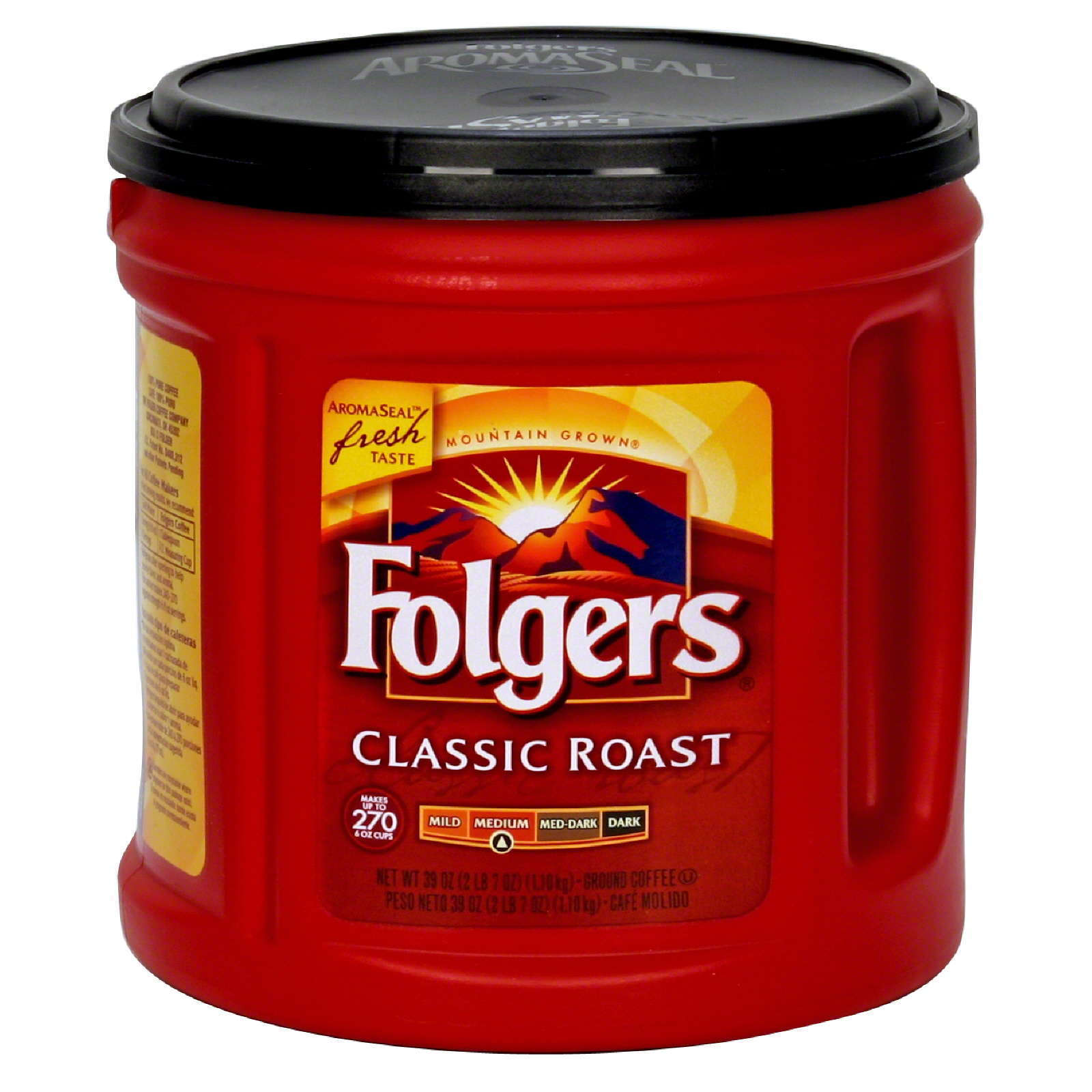
It feels disingenuous to make pour-over coffee with Folger’s from a plastic tub, but I have done it, and the results are quite drinkable. Canned coffee has a heftiness to it that only the darkest-roast bagged coffee achieves, and often at the expense of flavor. Folger’s is dark enough to mask distracting flavors, thin enough not to coat the esophagus with silty grounds, and so, so cheap. The label estimates it contains 60 servings—I make my coffee fairly strong, so I might not quite hit 60, but I bet it’d last me two weeks or so, which at $8 a month is cheaper than Netflix. Much like deli coffee, Folger’s has a flavor that depends greatly on proper drinking temperature—it is punishing when tepid. A microwave brings it almost back to where it needs to be, almost, but with such a large tub there’s no reason not to fix yourself another pour-over.
Maxwell House
Original
Price/lb: $5.83
Price/unit: $4.19 for an 11.5-ounce can
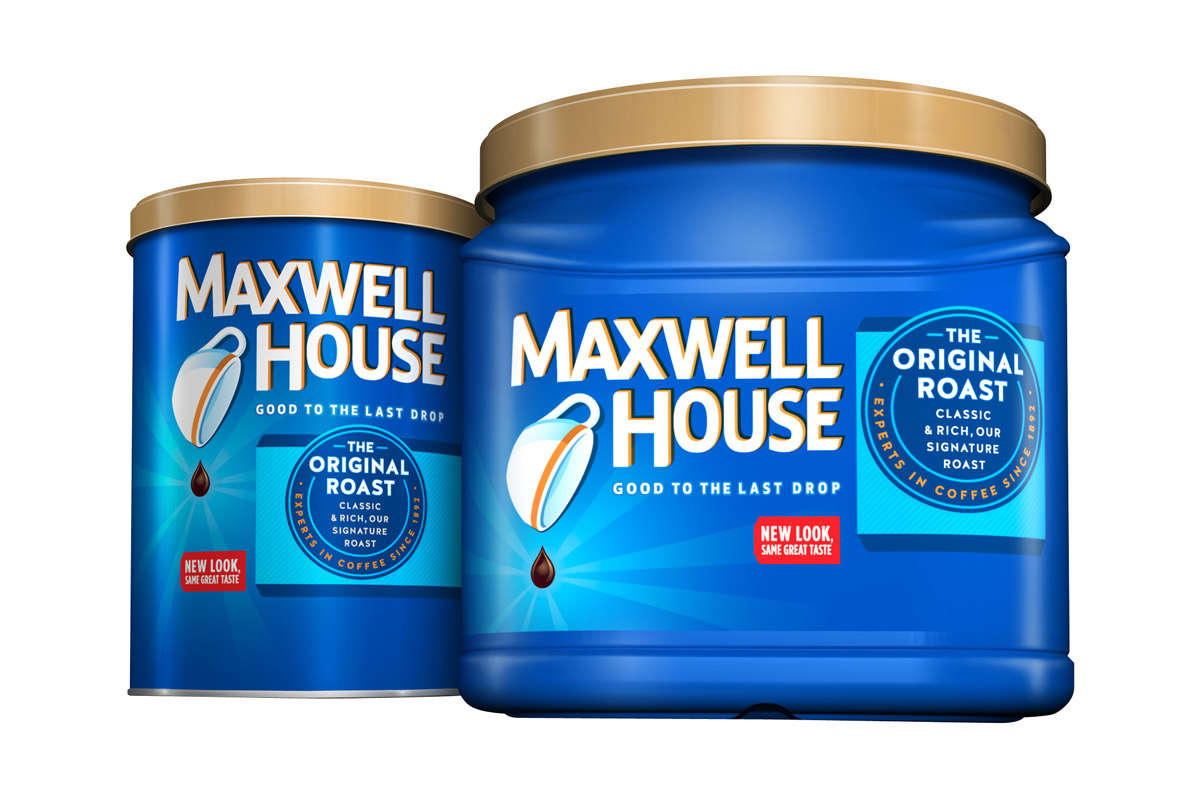
My parents drank Hazelnut Maxwell House for as long as I can remember, and used the empty metal canisters to store Ajax sponges and toolshed sundries. As a result I’ve always had a soft spot for canned coffee, and Maxwell House in particular, but of the canned coffees I tasted, it’s the best. Maxwell House is thoroughly uncomplicated, and it’s a difficult coffee to describe with much specificity. It is a perfectly reasonable (and quite cheap) starter coffee—that is, a coffee to start the day with—and one that doesn’t sacrifice flavor for affordability. It turns a bit as it cools, taking on a bitter aftertaste, but a quick drinker with a small mug should get by OK. A single caveat: Don’t microwave Maxwell House and expect to enjoy what comes out; it tastes unmistakably like airplane coffee, which in the grand hierarchy of complimentary coffee ranks just below single-serving hotel room coffee. For the price, even a coffee Scrooge like me would say you ought to just make a new pot.
Chock Full o’ Nuts
New York Roast
Price/lb: $8.82
Price/unit: $5.79 for a 10.5-ounce can
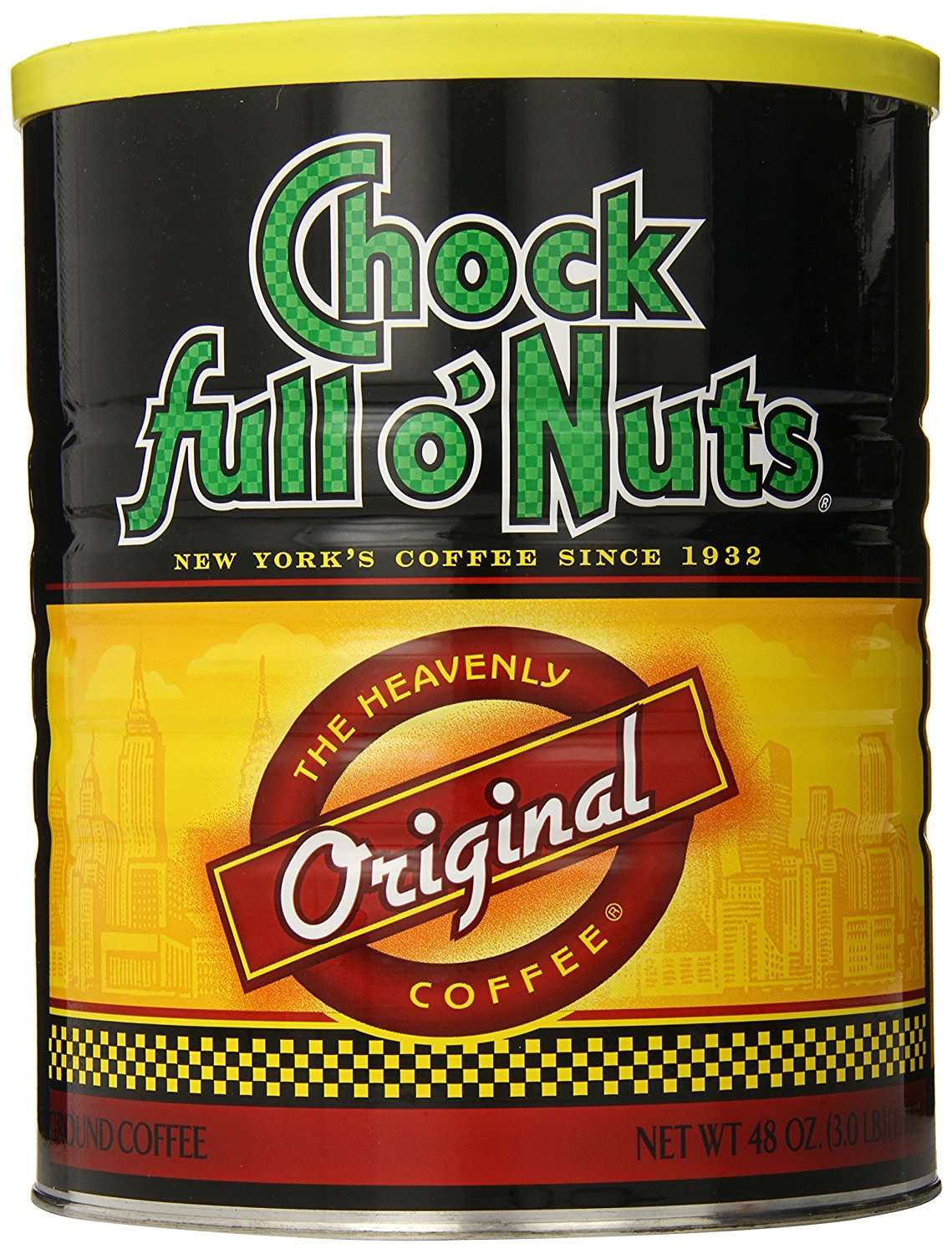
Chock Full o’ Nuts styles itself as the quintessential New York City coffee. The quintessential New York City Coffee has less to do with brand than with point of sale—a nameless coffee cart on a Manhattan corner—but it is the only coffee brand I know of to offer three distinct varieties of half-caf. Its per-pound cost approaches bagged coffee, making it a questionable deal among canned brands. Chock Full o’ Nuts has the teeth-sticking effect of good chicory coffee without, I believe, containing chicory. Its flavor has a tinge of burnt bread and an aftertaste that causes the corners of my mouth to turn down involuntarily. It is undrinkable cold, but do not attempt to drink reheated Chock Full o’ Nuts. This is the fire extinguisher of coffees—in the event of catastrophe you’ll be glad you have it, but it’s not for blowing out a candle.
Café du Monde
Coffee and Chicory
Price/lb: $10.66
Price/unit: $9.99 for a 15-ounce can
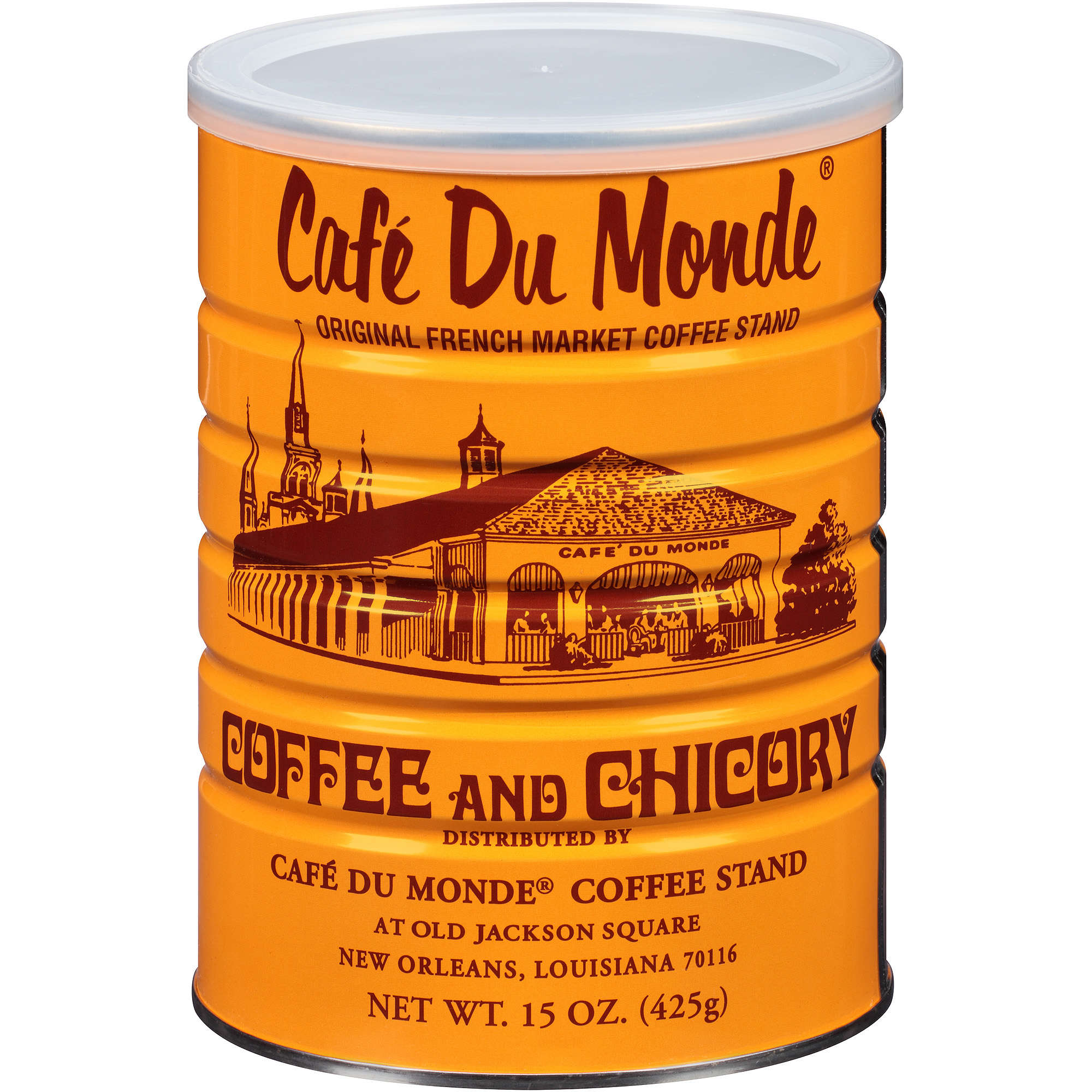
Café du Monde, like Chock Full o’ Nuts, is as much a stylistic choice as a gastronomic one, and both require a deep well of cultural identification to stomach on a regular basis. Chicory has historically been used as a coffee substitute as well as a flavoring agent, and chicory coffee in the US is closely associated with New Orleans coffee culture. Café du Monde is named for an actual coffee stand in New Orleans that has been in operation since the 1860s, and may be the best-known domestic producer of chicory coffee, if not the only one. The iconic marigold can includes a recipe for café au lait, the traditional chicory coffee drink sold at the IRL Café du Monde; given the parameters of this coffee taste-test, and the practical concerns of an at-home coffee drinker without the ability or desire to boil milk every morning just to stomach their coffee, I drank it black. This may have been a mistake. The flavor of chicory is interesting, and even initially enjoyable, but the romance was gone for me after about two minutes. I had a similar physical reaction to Chock Full o’ Nuts, my face contorting involuntarily into what I feel compelled to call a Chicory Frown. This worsened as it cooled, but cold black chicory coffee is nothing compared to microwaved chicory coffee. After a single sip I poured it out in the sink. Chicory has its devotees, but I fear the taste is not one I can acquire.
Café Bustelo
Price/lb: $6.38 ($5.58 per pound of vacuum pack)
Price/unit: $3.99 for a 10-ounce can ($3.49 for a 10-ounce vacuum pack)
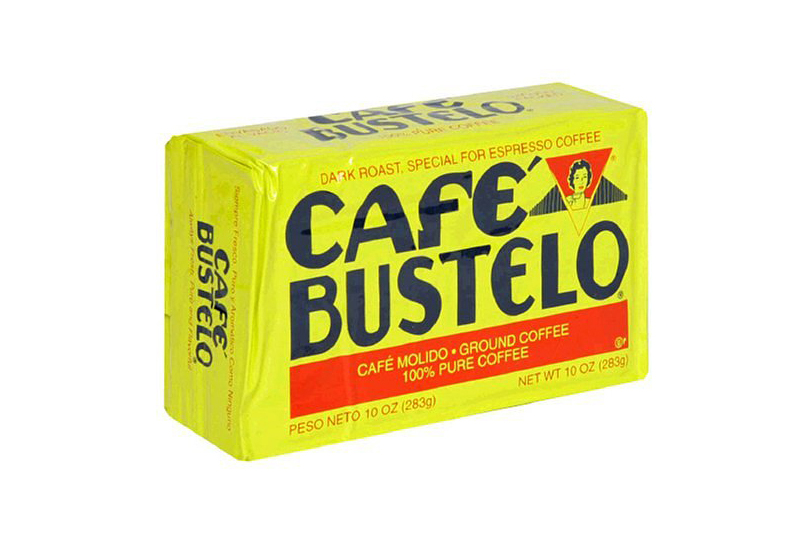
Café Bustelo is technically the cheapest coffee on this list because it’s sold in both a can and a vacuum-packed brick, but in a can it’s only third-cheapest, after Maxwell House and Folger’s. Unlike the other coffees under consideration, Café Bustelo is espresso ground, which is much finer than drip ground. This, in addition to the dark roast of the coffee beans, makes it a robust sipping coffee. I double-filtered my pour-over to avoid too much coffee silt, but the flavor was undiminished. It tastes like any other coffee made with double the grounds, and is complexly awful reheated. Café Bustelo is truly motor oil coffee, which is not necessarily a mark against it—it’s likely to burn a hole through even the most memorable hangover, and will propel you forcefully into the next two to three hours of your life. This is not for the faint of heart (seriously, I’m having palpitations as I type this) but ultimately is quite drinkable.
The Bags
Bagged coffee is standard, from grocery stores to coffee roasters (most of them), but subtle variations make for significant differences among these coffees, particularly in price. This is complicated by the fact that a bag of coffee is often referred to as a “pound,” when in fact most bags only hold between 10 and 12 ounces of coffee. A bag of Newman’s Own Organic coffee costs $10.29, only $0.10 more than a bag of Starbucks coffee, but Newman’s is only a 10-ounce bag to Starbucks’ 12 ounce. Brewer beware!
Best of this category: New England Coffee, a coffee that reheats well, tastes good, and still comes in under $10
Runner-up: Green Mountain, an impressively good coffee for the price
Best value overall: Eight O’Clock coffee, which comes in under $8 but tastes more expensive
Green Mountain
Breakfast Blend
Price/lb: $13.32
Price/unit: $9.99 for a 12-ounce bag
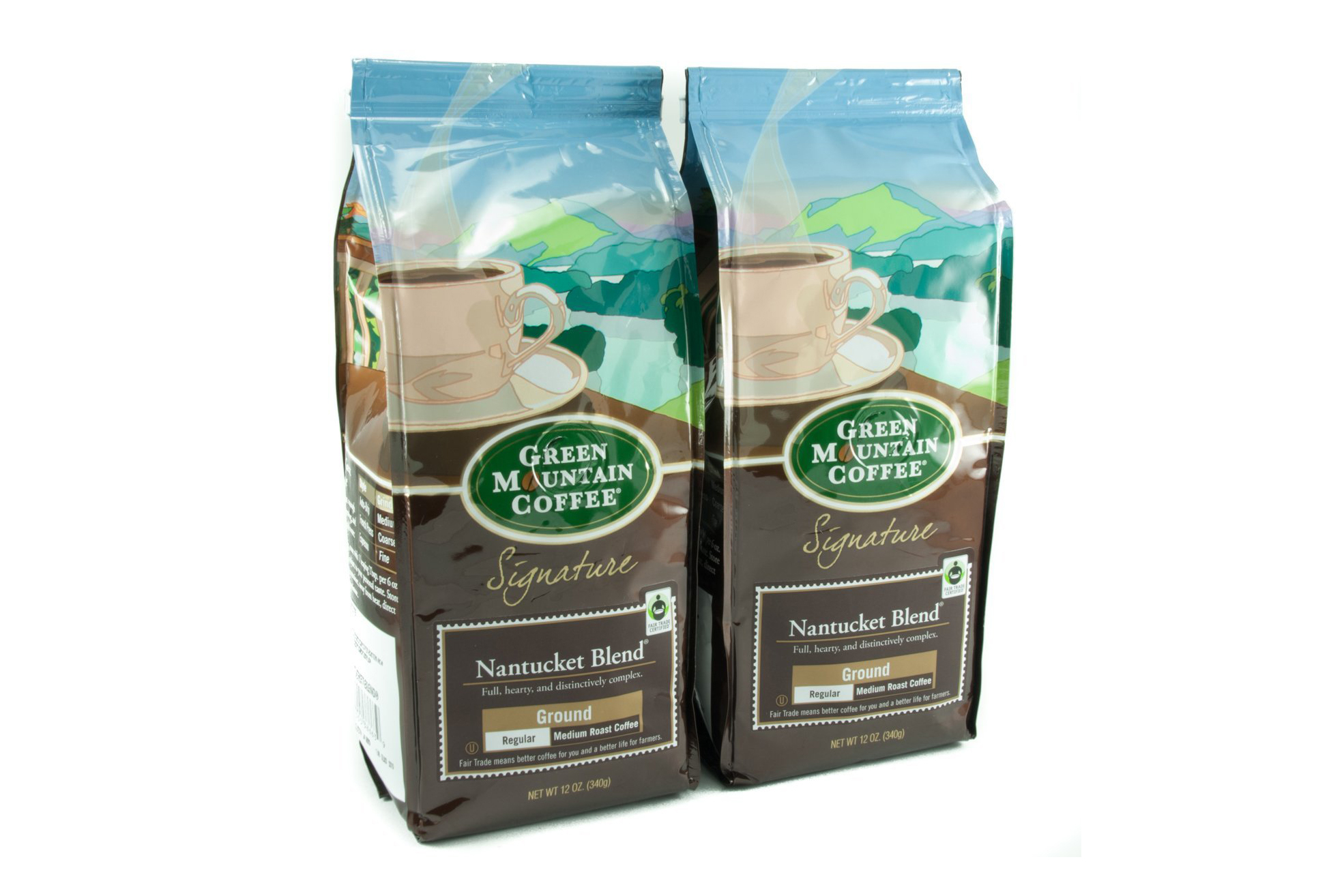
Green Mountain Coffee Roasters is unusual among the grocery store coffee set in that it references neither the coffee-growing regions of the equator nor any city associated with coffee culture—New York, Vienna, etc.—instead staring wistfully off in the direction of the Green Mountains of Vermont. This is a thoroughly pleasant coffee, light-roasted and gentle on an empty stomach, as mine often is at the coffee hour. Green Mountain has an impressive thermal shift, remaining drinkable even as it cools—even to an avowed hater of iced coffee. It microwaves decently, too, buoyed gently back to drinking temperature without darkening into bottom-of-the-pot creosote, making it a solid choice for even the coldest of kitchens.
Eight O’Clock Coffee
The Original
Price/lb: $11.19
Price/unit: $7.69 for a 12-ounce bag
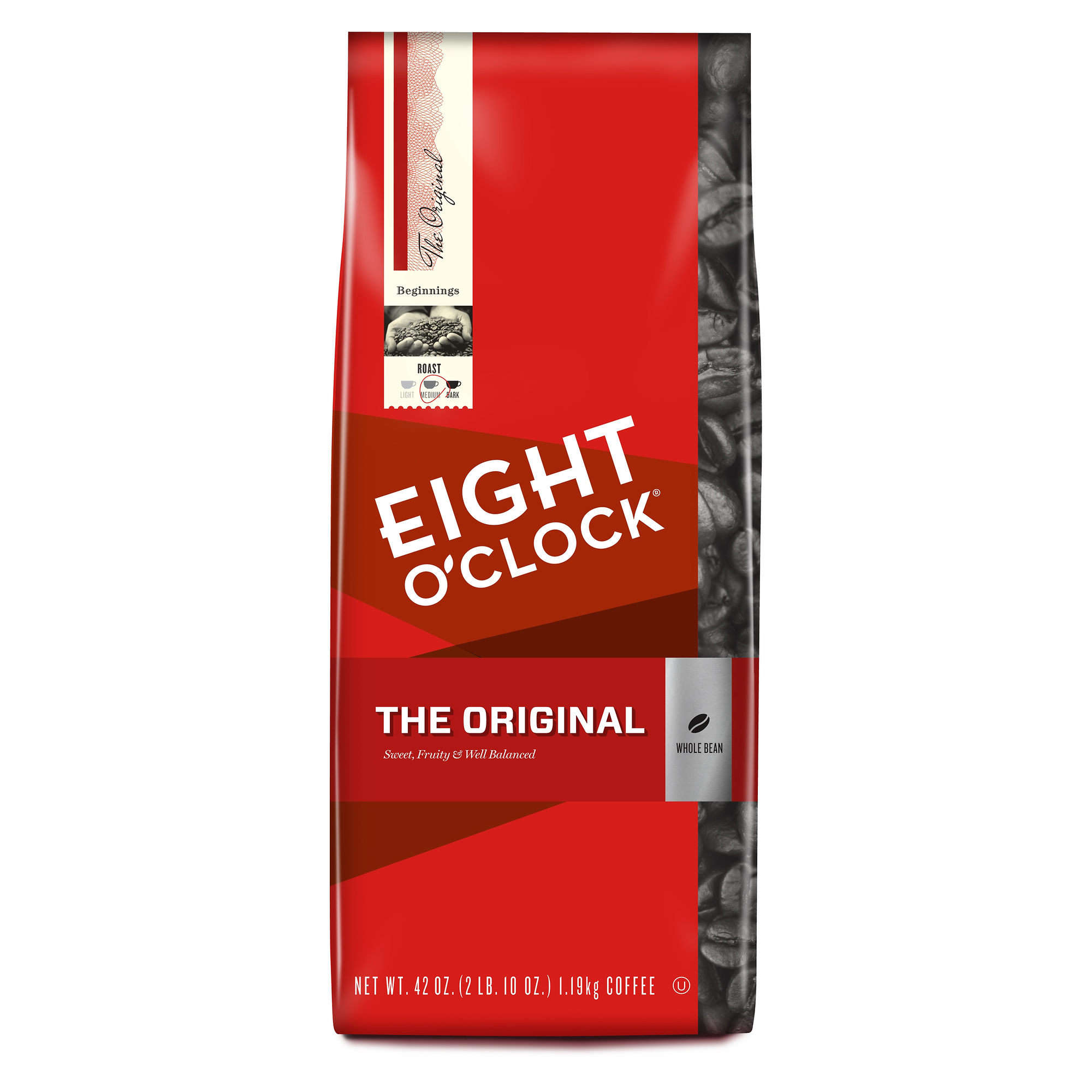
Eight O’Clock Coffee is a sleeper in this set, brand-wise, but a surprisingly enjoyable cuppa. It’s the only brand I tasted about which I had no preconceptions, and it turned out to be one of my favorites. It’s dark without being bitter, and is solidly microwaveable. It’s slightly ahead of the median bagged coffee price in this set but streets ahead in flavor, making it a solid value buy.
Gevalia
House Blend
Price/lb: $9.32
Price/unit: $6.99 for a 12-ounce bag
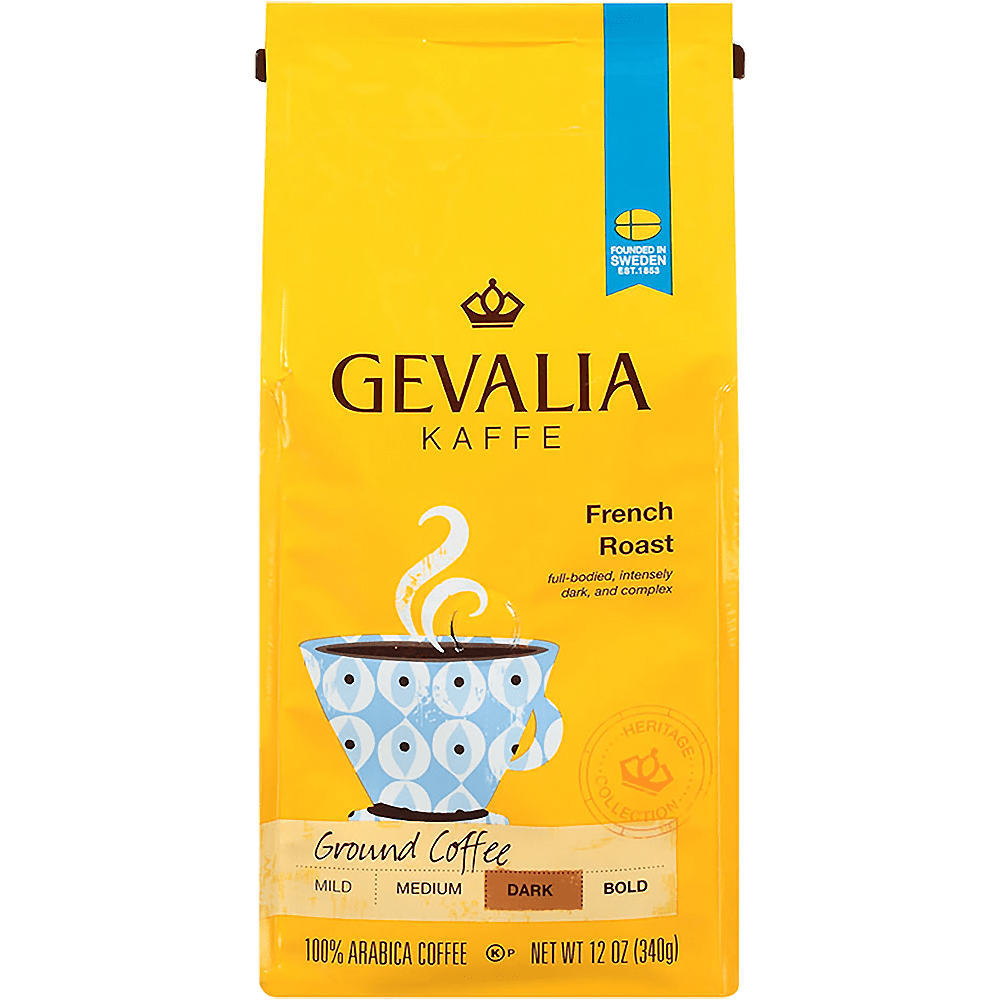
Gevalia may have the prettiest packaging of all the assembled coffees, with a distinctive yellow bag and stylized illustrations fit for an IKEA. Despite its apparent fanciness, Gevalia is widely available in pharmacies and grocery stores, and usually for fairly cheap. A 12-ounce. bag of House Blend was $6.99 at Stop & Shop, making it the cheapest of the non-canned coffees I tested. Perhaps consequently, heat is an essential component to an enjoyable cup of Gevalia, and the taste becomes flat and headachy as it cools. However, Gevalia is the rare coffee that performs well in a microwave, and tastes as good reheated as it does freshly brewed.
New England Coffee
Breakfast Blend
Price/lb: $9.99
Price/unit: $7.49 for a 12-ounce bag
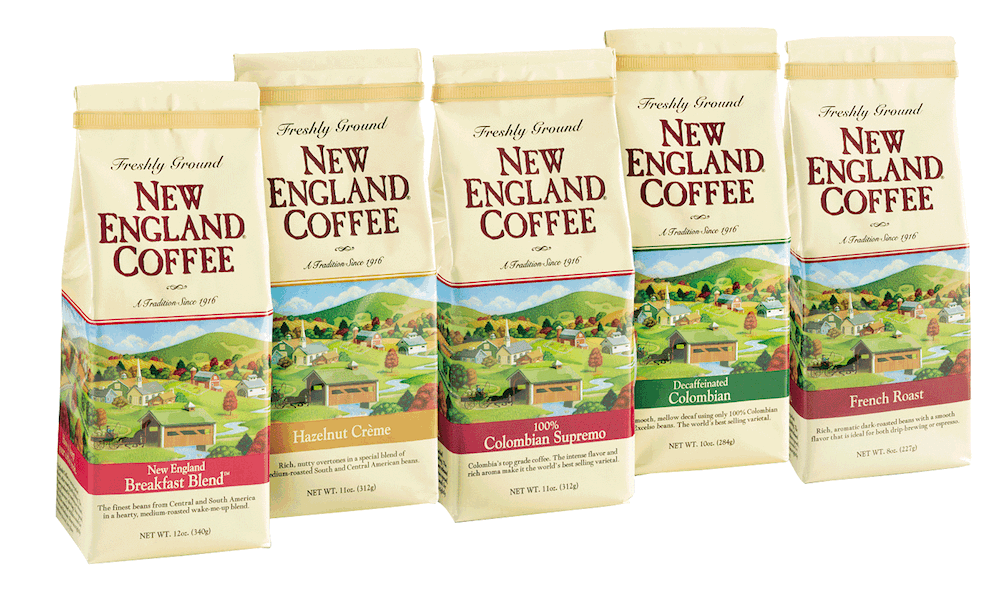
New England Coffee was the dining hall coffee at my New England college—a bit on the nose, but a strong choice. Like Green Mountain coffee, New England Coffee locates its mythology north of Connecticut; its packaging includes a covered bridge, horse-drawn carriage, red barn, mill race, and church steeple in a landscape painted à la Grandma Moses. I hardly noticed I was drinking my pour-over cup until it was half gone, which is, unexpectedly, high praise for a cup of coffee. Like inexpensive wine, inexpensive coffee is best when its flavor is innocuous. A hint of sour coffee stomach waits in the wings, but with a hearty breakfast alongside, New England Coffee is a safe and delightful option.
Newman’s Own Organics
Breakfast Blend
Price/lb: $16.46
Price/unit: $10.29 for a 10-ounce bag
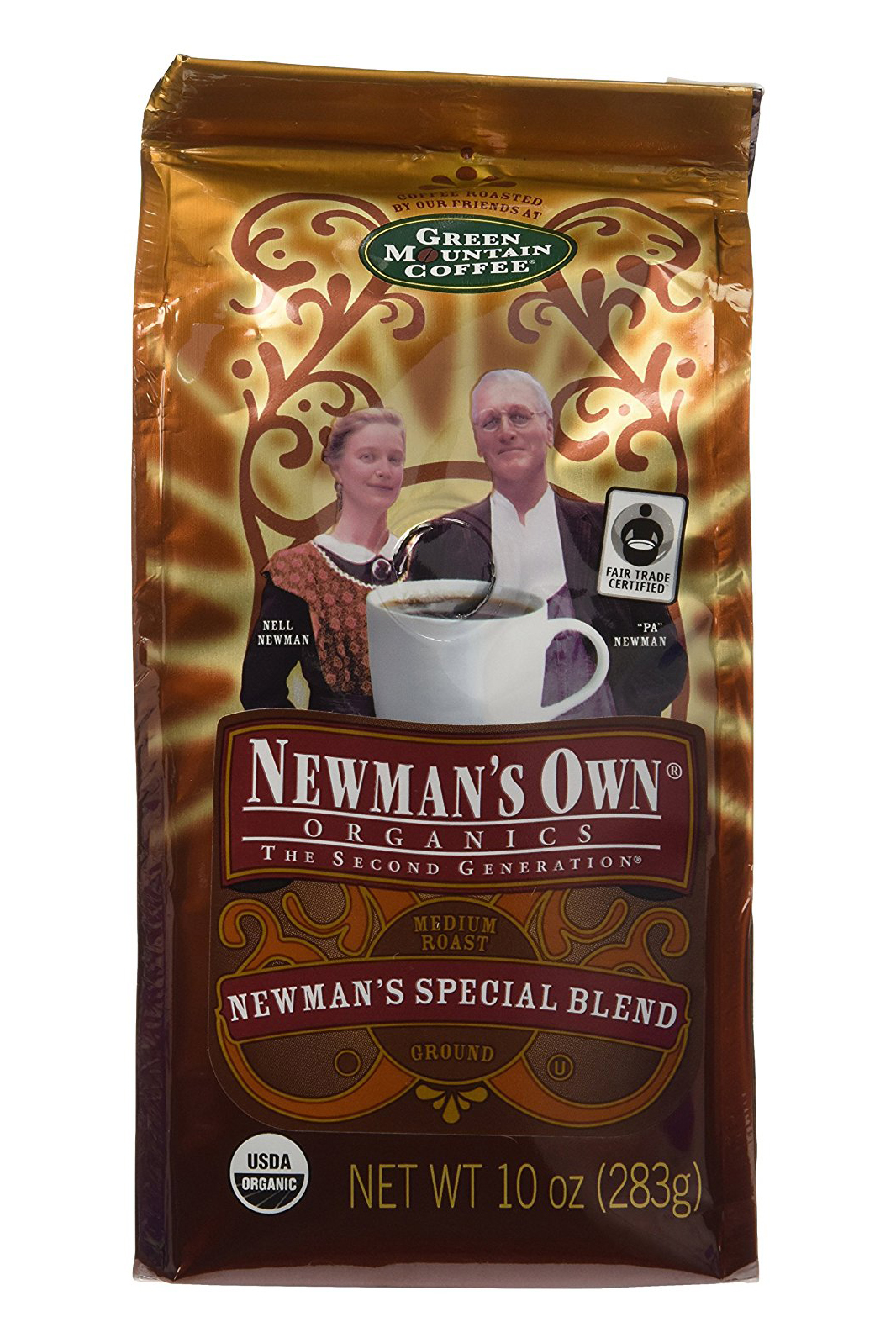
Newman’s Own is a feel-good coffee—it’s organic, all company profits go to charity, and Paul Newman’s little dad-hot cartoon face on the bag grins approvingly at your choices. Its flavor is uncomplicated, and it tastes like the last coffee of the day should taste—a 3 p.m. pick-me-up that tows you calmly to the end of the workday rather than punching you in the eye-bags like a morning coffee needs to. This is the most expensive in the bunch, at $16.46 per pound, and isn’t so far ahead of Green Mountain ($13.32/lb) that it’s worth the splurge on anything but ethical or aesthetic grounds. Moreover, it falls short of Green Mountain in thermal shift and microwaveability: flavor deteriorates in proportion with temperature, and after microwaving dries out the inside of one’s mouth—not a problem if you’re a quick drinker, but sippers beware.
365 Everyday Value
Pleasant Morning Buzz
Price/lb: $9.58
Price/unit: $5.99 for a 10-ounce bag
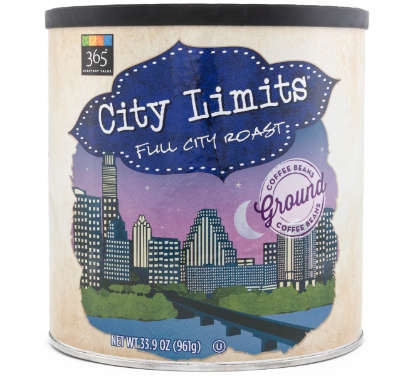
To be honest, my expectations were low for whatever “affordable” coffee Whole Foods might offer, and I was a bit reluctant even to include it under the umbrella of regular grocery stores (despite the company’s recent “Yes, we have sales!” ad campaign), but here I stand both corrected and impressed. 365 Everyday Value is the Whole Foods Market store brand, which markets products fitting the Whole Foods ethos, at least aesthetically—don’t assume it’s organic!—at regular grocery prices. A 10-ounce bag of ground coffee costs $5.99 at the Gowanus Whole Foods in Brooklyn, making it the cheapest bagged coffee here per-unit and decidedly on the cheap end per-pound. Pleasant Morning Buzz is a Vienna roast-style coffee, a dark roast just shy of a French roast style, which gives the coffee a heavy, bittersweet flavor that’s easy to sip on for a black coffee drinker. As a rule, darker roasts do not microwave as well as lighter roasts, and this coffee is no exception—get it while it’s hot or pour yourself a new one.
Dunkin’ Donuts
Original Blend
Price/lb: $12.39
Price/unit: $9.29 for a 12-ounce bag
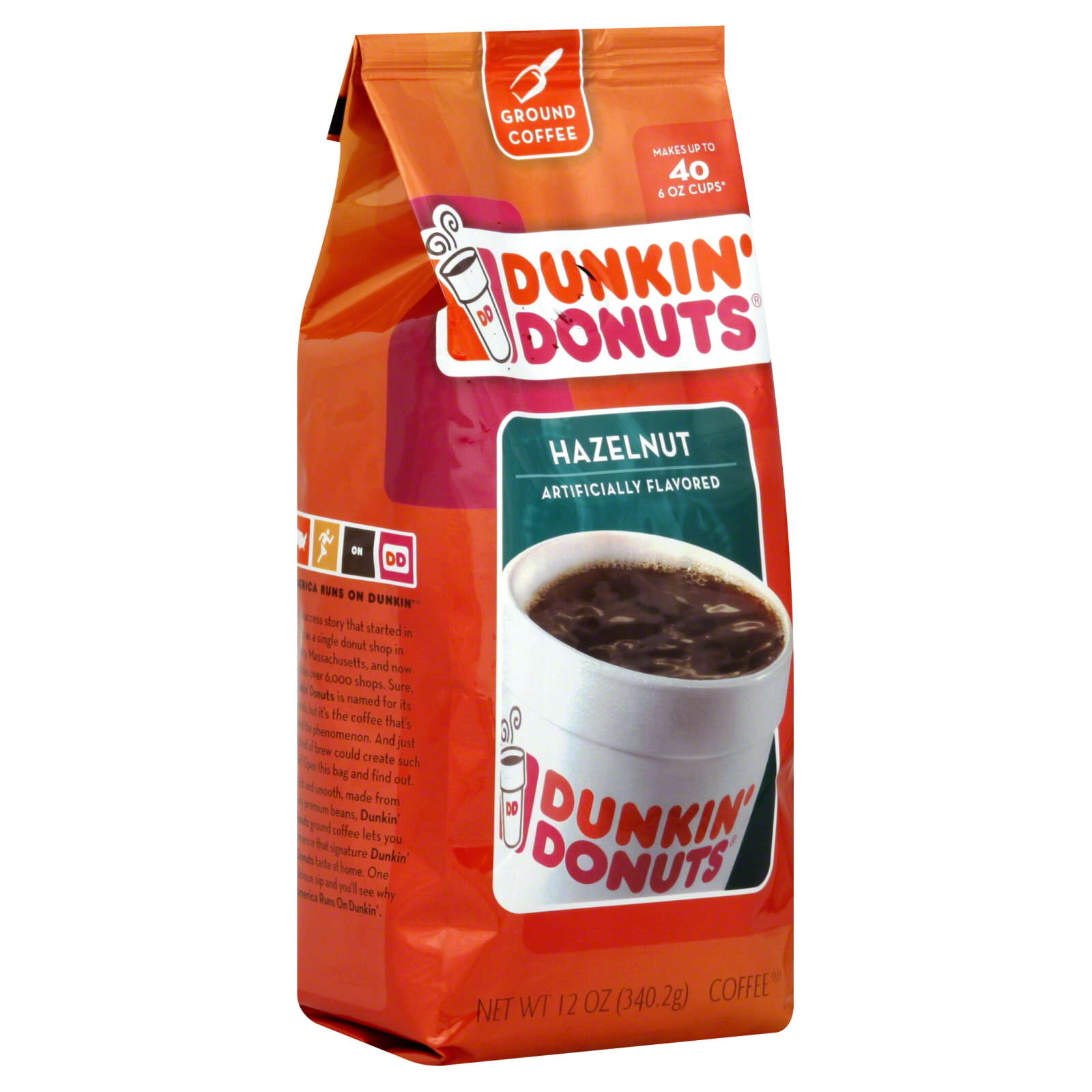
Of the two at-home iterations of Big Coffee, Dunkin’ Donuts and Starbucks, I prefer Dunkin’. It’s more drinkable black—lighter without being bitter, roasty without being burnt, and far easier on a pre-bagel empty stomach on my way out the door. Home-brewed Dunkin’ is nearly indistinguishable from takeout Dunkin’, and even aside from being cheaper per cup, drinking it at home saves styrofoam. Dunkin’ Donuts Original has a gentler thermal shift than most coffees in its price range, continuing to be enjoyable all the way down to room temperature, but if you’d like to freshen the heat it is admirably microwaveable.
Starbucks
House Blend
Price/lb: $13.59
Price/unit: $10.19 for a 12-ounce bag
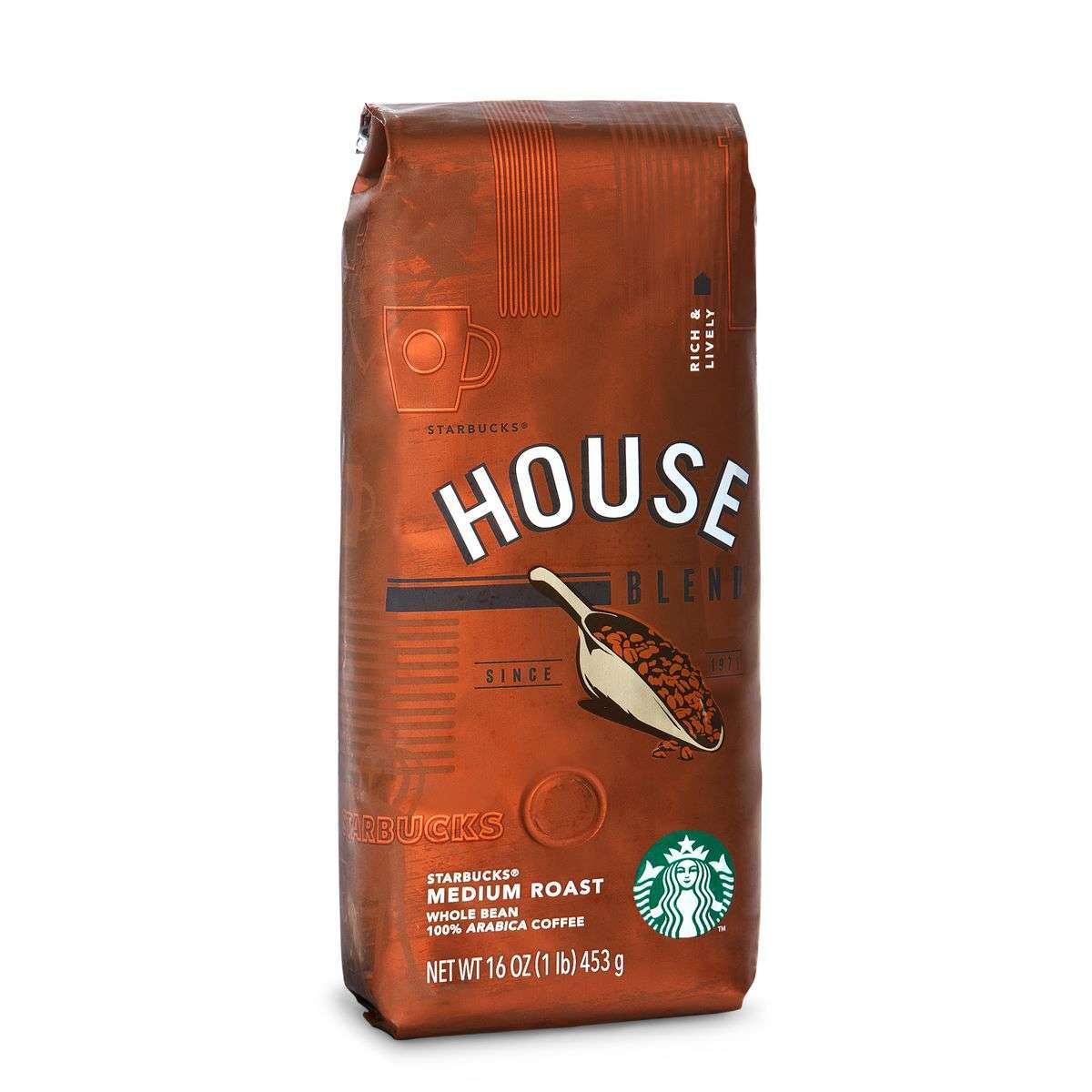
Love yourself enough not to drink Starbucks coffee at home. I don’t know a single black-coffee drinker who prefers Starbucks to Dunkin’ Donuts, and I’d wager the brands’ respective grocery-store offerings are likely to preserve these allegiances. Starbucks coffee black tastes like drip coffee made with day-old coffee instead of water, and the headache it produces is textbook coffeeache—right behind the eyes, accompanied by an involuntary grimace. Additionally, Starbucks coffee is almost hilariously expensive for how bad it is, and for how many other coffees there are to drink. Drink it out in the world if you must, but spare yourself the pain in your own damn kitchen.
This article originally appeared on ExtraCrispy.com
We’ve included affiliate links in this article. Click here to learn what those are.
More Must-Reads From TIME
- The 100 Most Influential People of 2024
- Coco Gauff Is Playing for Herself Now
- Scenes From Pro-Palestinian Encampments Across U.S. Universities
- 6 Compliments That Land Every Time
- If You're Dating Right Now , You're Brave: Column
- The AI That Could Heal a Divided Internet
- Fallout Is a Brilliant Model for the Future of Video Game Adaptations
- Want Weekly Recs on What to Watch, Read, and More? Sign Up for Worth Your Time
Write to John Sherman / Extra Crispy at extracrispy